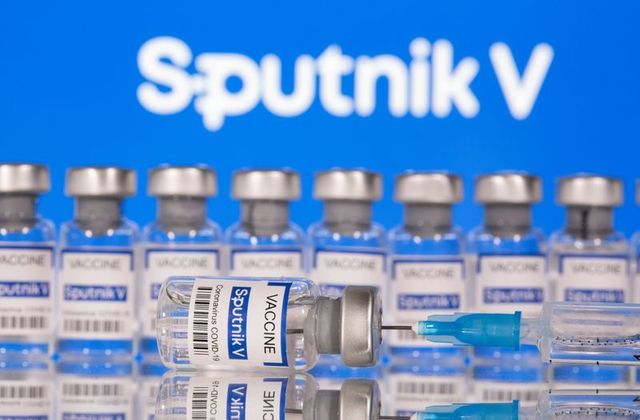Pharmacist and Fellow of the Ghana Centre for Democratic Development (CDD-Ghana), Kwame Sarpong Asiedu says the issue with Ghana’s use of intermediaries to procure Covid-19 vaccines is not about the quality of vaccines but the legality of the procurement process.
"The issue is not about quality; it is about legality, " Dr Asiedu said.
Explaining his point on Joy News' Newsfile Saturday, he said, “The issue with the middle man, not about the FDA not doing their job, it is about that middleman not having a contract with the local holder of the Emergency Use Authorization, that’s where the issue is.
“So if I register a product in Ghana and it’s within patent, if you want to bring it into Ghana, I either bring it myself, or I can franchise someone to bring it, or the manufacturer, in this case, it is Sputnik, the Russian development fund can bring it on behalf of somebody.
Speaking on quality, he said the Food and Drugs Authority (FDA) has, over the years, proven to be a robust institution ensuring the quality of products on the Ghanaian market; thus, there should not be any cause for alarm concerning the quality of the vaccines.
"Ghana has one of the most robust regulatory authorities when it comes to medicines in Africa," he said.
However, he was concerned about how go-betweens were being employed to bring the vaccines into the country, a situation he says could create some legal bottlenecks for the country in the future.
“If a 3rd person is bringing it because the regulation doesn’t allow you to register the product, twice in the same country, then there are regulatory issues and legality issues there.”
He stated that without a legal contract between the Emergency Use Authorisation holder and the middleman, any adverse event post-immunization, would have to be borne solely by the Ministry of Health.
He further advised the FDA to collate the adverse events post immunisation.
“What I will say is that yes, the FDA will do all that, but another thing that the FDA would have to ensure is the collation of the adverse events, post-immunisation, which is the responsibility of the person who holds the emergency use authorization that is where the real issue will be.
“When the middleman brings it and issues that disclaimer, albeit, the disclaimer is issued by all manufacturers; however, when it comes to the adverse effects post-immunisation, it is the responsibility of the local procurer of the emergency use authorisation.
“The question I ask consistently is if we use a middleman, will the Ministry of Health take over that responsibility and any liability that comes with it? We don’t have answers, and that is where the problem is, so I don’t have an issue at all with the FDA’s robustness,” he said.
Latest Stories
-
Rugby Africa Cup returns to Kampala as 8 nations battle for World Cup glory
6 minutes -
Perseus Mining Ghana announces leadership transition
16 minutes -
Nuamah’s Olympique Lyon relegated to Ligue 2 over financial troubles
30 minutes -
SHS students to debate Copyright Issues at 2025 Ghana Book Fair
50 minutes -
Supreme Court vetting report approved despite Minority pushback
53 minutes -
Ghana’s development agenda strengthened as NDPC signs MoU with KPMG
59 minutes -
Journey to the West: A Struggle through Ghana’s deteriorating roads
1 hour -
AMA clamps vehicles for violating revised street loading hours
1 hour -
Sylvester Tetteh declares interest in NPP General Secretary position
2 hours -
Fifi Kwetey urges full return of Rawlings family to NDC core
2 hours -
Our ‘Thank You Tour’ was turning into a popularity contest – Nana Akomea
2 hours -
Seven arrested over robberies at Ashaiman Sakasaka Park and Dagomba Junction
2 hours -
The Media’s Role in shaping cultural norms, perception, and behavior toward leadership and democratic values in Ghana’s Reset Agenda
2 hours -
Volta Regional Minister rallies districts to prioritise disaster preparedness and environmental resilience
2 hours -
‘Funny’ sells: Meet the comedian blending marketing with humour (LOLs to ROIs)
3 hours

